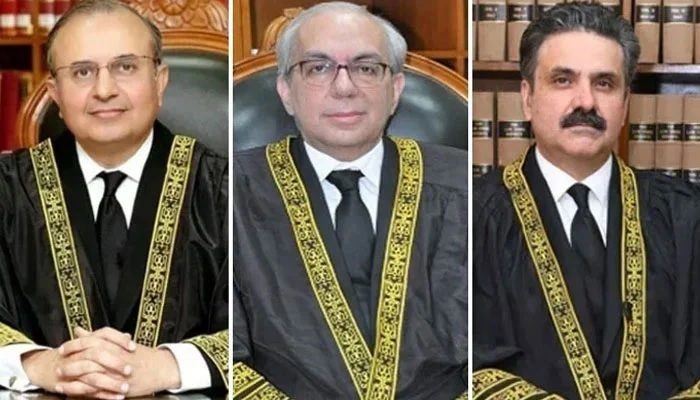The event was attended by an array of dignitaries, including Prime Minister Shehbaz Sharif, the heads of the three armed forces, and Speaker of the National Assembly Sardar Ayaz Sadiq, among others

By our correspondent
ISLAMABAD: Chief Justice Yahya Afridi has embarked on his tenure with a significant administrative move, reconstituting the committee established under the Supreme Court Practice and Procedure Act of 2023. This newly formed committee, which Afridi will lead, includes Justice Syed Mansoor Ali Shah and Justice Munib Akhtar as its members. This decision marks an important initial step for Afridi as he assumes the pivotal role of Chief Justice of Pakistan.
Earlier today, Afridi took the oath of office in a ceremony held at the Aiwan-e-Sadr, the President’s House. The oath was administered by President Asif Ali Zardari, symbolizing a formal transition in the country’s highest judicial office. The event was attended by an array of dignitaries, including Prime Minister Shehbaz Sharif, the heads of the three armed forces, and Speaker of the National Assembly Sardar Ayaz Sadiq, among others. High-profile politicians such as Punjab Chief Minister Maryam Nawaz and Balochistan Chief Minister Sarfraz Bugti were also present, reflecting the ceremony’s significance within the broader context of Pakistan’s political landscape.
The attendance of senior judiciary figures, including Justices Ayesha Malik and Athar Minallah, underscored the collective transition within the Supreme Court, reinforcing the continuity and stability of the judiciary during this critical period. Afridi’s nomination as Chief Justice followed the approval of the 26th Constitutional Amendment, with a special parliamentary committee endorsing his appointment, which is a testament to his recognized legal acumen and leadership capabilities.
As Afridi takes the helm, the reconstitution of the committee signals his intention to prioritize the effective implementation of the Supreme Court Practice and Procedure Act, an essential framework designed to enhance the judicial process in Pakistan. His leadership is anticipated to bring a fresh perspective to the judiciary, particularly as it grapples with contemporary challenges and strives to uphold the rule of law.
The appointment of Afridi comes at a time when the judiciary is under close scrutiny, facing pressures for reform and accountability. His actions in the early days of his term will be watched closely by both legal experts and the public, as they seek to gauge his approach to issues ranging from judicial efficiency to the integrity of the legal process. The expectation is that he will not only build on the legacy of his predecessors but also forge a path that reflects the evolving needs of the Pakistani legal system.



